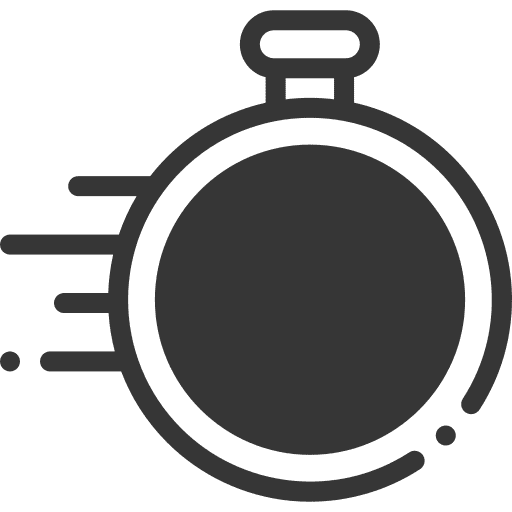Welcome back to Lawgical, where we untangle the legal knots so you don’t have to. I’m Ludmila Yamalova, a US-qualified lawyer based in Dubai. In each episode, we break down complex laws into clear, practical insights you can actually use.
Today’s episode is about the possession of cannabis in the UAE—an area of law that’s undergone significant change in recent years. Cannabis, also known as marijuana, has become widely accepted and even legalized in many parts of the world. But the UAE has long taken a zero-tolerance stance toward any kind of drug, including cannabis.
Until recently, even small amounts could land you in jail, followed by automatic deportation. But the legal framework has evolved—and these changes are important, especially for tourists and first-time offenders.
Before we unpack the current legal framework, let me share a real-life case we handled before the legal reforms came into effect.
A Case From 2020
In 2020, at the peak of COVID, we represented a long-term resident in a neighboring Emirate. He had been receiving packages from Canada, which occasionally included vapes. Now, vapes themselves aren’t illegal in the UAE—but these particular vapes contained CBD oil, which was.
At some point, customs stopped him while picking up a package. Upon inspection, they found several vapes containing what testing confirmed was CBD or THC. He was also asked to undergo a urine test, which came back positive for cannabis-related substances.
Because this happened before the legal reforms, the case was taken to court. Despite the vapes being for personal use and not commercial quantities, he was charged not only with consumption but also importing drugs—a more serious offense.
The verdict? Guilty. He was fined 10,000 dirhams, received a jail sentence (partially waived due to COVID), and was ordered to be deported. Despite our appeals at every level—including a grievance specifically against the deportation order—it was upheld.
This is important because, at the time, the law didn’t allow for any judicial flexibility. Deportation was mandatory, even for first-time offenders and residents with strong local ties.
The Legal Shift in 2021
In 2021, Federal Decree Law No. 30 was introduced: The Decree on Combating Narcotics and Psychotropic Substances. This law did not legalize cannabis or THC—but it softened the penalties.
The law comes with extensive schedules outlining prohibited substances. Cannabis is clearly listed under several schedules—Schedule 1 Clause 29, Schedule 4 Clause 8, Schedule 5 Clause 34, and Schedule 6 Clause 4. These cover cannabis extracts, THC, and chemical variants like Delta-9.
So while cannabis and related products remain illegal, the law allows for discretion in sentencing—especially for personal use and first-time offenses.
Article 96: A Game-Changer
One of the most significant changes came through Article 96, which deals with people arriving at UAE entry points in possession of illegal substances. It decriminalized small, personal-use amounts of cannabis-based products—but only for first-time offenses, and only at ports of entry like airports.
Here’s how it works:
-
The product is confiscated.
-
An administrative report is filed.
-
The person is allowed to enter the country, often just for the duration of their visit.
-
No criminal prosecution is initiated.
Let me share a case that illustrates this shift.
A Case from 2021: The Tourist and the Spliff
An American tourist flying in from New York for a wedding was stopped at the airport. A small spliff fell out of the front pocket of his suitcase. Given the legality of cannabis in parts of the US, he claimed ignorance—and honestly, his reaction seemed genuine.
In the past, he would have been detained immediately, jailed, fined, and deported for life. Instead, authorities confiscated the spliff, allowed him entry, and told him, “Enjoy Dubai—you’ll never see it again.” When he left, he was blacklisted from reentering, but that was the extent of it. No jail, no court.
The 2024 Update: Cabinet Resolution No. 43
In 2024, Cabinet Resolution No. 43 was introduced, building on Article 96 and targeting non-residents at entry points. It brought in more clarity, including:
-
A substance quantity table outlining permissible limits for CBD products like creams and oils.
-
Tiered fines:
-
First offense: AED 5,000 to 20,000, no deportation.
-
Second offense: AED 10,000 to 30,000 + 3-year ban.
-
Third offense: AED 50,000 to 100,000 + permanent deportation.
-
This is a significant departure from the old framework. Under this new law, our 2021 client would have simply paid a fine and been free to return.
Residents and Use Within the UAE
Now let’s talk about residents or anyone consuming cannabis within the UAE (not at entry points).
Article 42 of the 2021 law applies here:
-
First offense: 3 months jail or AED 10,000 to 100,000 fine.
-
Second offense (within 3 years): 6 months jail or AED 20,000 to 100,000.
-
Third offense: Jail + AED 50,000 to 200,000.
Previously, jail time was mandatory. Now, judges can issue fines instead—unless there are aggravating factors.
Article 75: Deportation is No Longer Automatic
Under Article 75, deportation is no longer mandatory. Courts now have discretion, especially for first-time offenders, small quantities, and cases involving personal use.
If our 2020 client’s case occurred today, he likely wouldn’t have faced deportation at all—just a fine, and perhaps not even a criminal record.
Medical Cannabis? Still Illegal.
Many ask about medical cannabis. Even if you have a legal prescription from the US, Canada, or elsewhere—it is still illegal in the UAE. That includes oils, edibles, inhalers, and creams.
If you rely on cannabis-based medication, leave it at home. The law does not currently recognize medical exceptions.
Real Cases, Real Shifts
We’ve seen the new framework in action:
-
A Syrian tourist caught with a THC vape was fined—not jailed.
-
A group of residents caught with THC in their bloodstream were fined and allowed to stay, instead of being deported.
-
A Swiss digital nomad was allowed to leave (though blacklisted) despite entering with a “cocktail” of substances.
Even so, the law has not been liberalized—only the punishment has. This is still the Middle East. Drugs remain illegal.
Final Thoughts
For tourists: Do not bring cannabis products into the UAE, even if they’re legal at home.
For residents: Be aware—possession or use can result in fines, jail, and visa cancellation.
For digital nomads: Don’t confuse leniency with legality.
If you found this useful and you like what we do, you can find more on our website: lylawyers.com. We’re also on Apple Podcasts and Spotify, and for the full experience, check out our video podcast on YouTube.
Until next time—stay informed, stay safe, and keep things Lawgical.





